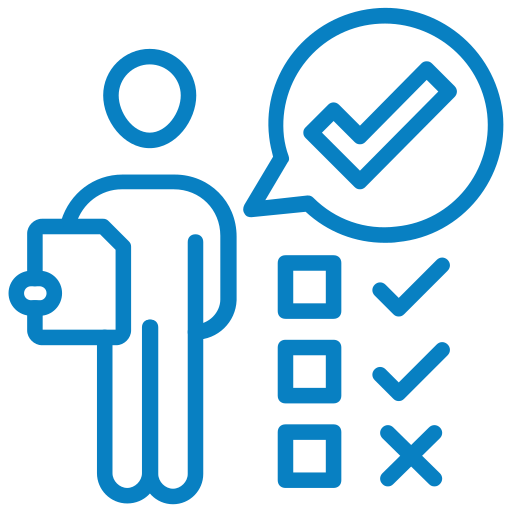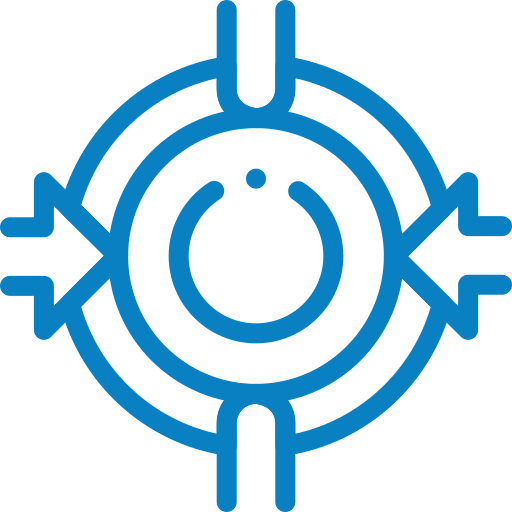Smart Cities Technician Job Profile
Functions aligned with ESCO
- Help in design and execution of plans and in organizational tasks, e.g. planning and monitoring, and in bidding and invoicing of development work, calculating, purchasing and organizing required resources and ensure quality of components. Can also develop and advise on policy implementing strategies for urban infrastructure (e.g., from traffic lights to water management systems).
- Develop and implement cloud-systems, handle migration of existing applications to cloud, and debug cloud environment.
- Propose and implement necessary security updates and measures whenever is required. Also advice, support, inform and provide training and security awareness.
- Import, clean, validate, model, or interpret collections of data for business goals and given criteria. Also ensure consistent and reliable data from sources and repositories and prepare reports with visualizations such as graphs, charts, and dashboards.
Essential knowledge and skills
 |
IoT knowledge. Principles, requirements, limitations and vulnerabilities of smart connected devices and automatic control systems for digital control, distribution saving and use of energy and information management. IoT skills. Design and calculate smart systems, based on grid load, duration curves, energy simulations, etc. |
 |
Security knowledge. Methods and standards to protect ICT systems, resources and users against illegal or unauthorized use, identifying, assessing and dealing with all types of risks including from cloud computing Security skills. Create strategy for safety and security, with set of rules and policies. Analyze systems to identify risks and implement procedures for identifying, assessing, mitigating them and prepare recovery plans |
 |
Cloud Computing knowledge. Technologies to access resources (hardware, software, services, etc.) through remote servers and software networks irrespective of location and architecture and metrics and alarms for monitoring services. Cloud Computing skills. Design infrastructure (networks and architecture) to implement optimized cloud solutions for customer requirements, fault toleration, workload and business needs. Identify elastic and scalable and cost-effective solutions and remediate deployment issues |
 |
Data analytics knowledge. Statistical methods, practices and data techniques for collection, organization, structure of data elements, analysis, interpretation and presentation of data (local and cloud) to reinforce the human understanding. Data analytics skills. Define data quality criteria; perform data analysis with statistical techniques to interpret data to assess development and innovation. |
 |
Machine Learning and Big Data knowledge. Big data technologies (machine learning, datamining, etc.) for smart cities to develop novel software ecosystems upon which advanced mobility functionalities emerge. Machine Learning and Big Data skills. Explore large datasets to reveal patterns using statistics, database or AI and present information in a comprehensible way. |
 |
Business and Management knowledge. Management principles and methodologies for projects or for own business venture, identifying creative solutions and according to quality standards and legal dispositions. Business and Management skills. Manage and plan resources (budget, deadline, results, quality), according to codes of conduct, and monitor progress and changes according to customer requirements and advice in a creative and feasible way according to legal dispositions. |
 |
Green knowledge. Political and technical processes to design urban environment and optimize land use considering aspects such as infrastructure, water, green and social spaces, circular economy, energy conservation and waste management. |
Optional knowledge and skills
 |
IoT knowledge. Principles, requirements, limitations and vulnerabilities of smart connected devices and automatic control systems for digital control, distribution saving and use of energy and information management. IoT skills. Design and calculate smart systems, based on grid load, duration curves, energy simulations, etc. |
 |
Security knowledge. Methods and standards to protect ICT systems, resources and users against illegal or unauthorized use, identifying, assessing and dealing with all types of risks including from cloud computing Security skills. Create strategy for safety and security, with set of rules and policies. Analyze systems to identify risks and implement procedures for identifying, assessing, mitigating them and prepare recovery plans |
 |
Cloud Computing knowledge. Technologies to access resources (hardware, software, services, etc.) through remote servers and software networks irrespective of location and architecture and metrics and alarms for monitoring services. Cloud Computing skills. Design infrastructure (networks and architecture) to implement optimized cloud solutions for customer requirements, fault toleration, workload and business needs. Identify elastic and scalable and cost-effective solutions and remediate deployment issues |
 |
Data analytics knowledge. Statistical methods, practices and data techniques for collection, organization, structure of data elements, analysis, interpretation and presentation of data (local and cloud) to reinforce the human understanding. Data analytics skills. Define data quality criteria; perform data analysis with statistical techniques to interpret data to assess development and innovation. |
 |
Machine Learning and Big Data knowledge. Big data technologies (machine learning, datamining, etc.) for smart cities to develop novel software ecosystems upon which advanced mobility functionalities emerge. Machine Learning and Big Data skills. Explore large datasets to reveal patterns using statistics, database or AI and present information in a comprehensible way. |
 |
Business and Management knowledge. Management principles and methodologies for projects or for own business venture, identifying creative solutions and according to quality standards and legal dispositions. Business and Management skills. Manage and plan resources (budget, deadline, results, quality), according to codes of conduct, and monitor progress and changes according to customer requirements and advice in a creative and feasible way according to legal dispositions. |
 |
Green knowledge. Political and technical processes to design urban environment and optimize land use considering aspects such as infrastructure, water, green and social spaces, circular economy, energy conservation and waste management. |
Soft skills
 |
Accountability (customer focus, diligence, reliability, efficiency) |
 |
Communication (networking, negotiation, teamwork) |
 |
Creativity (critical thinking, problem solving, decision making, initiative) |
 |
Ethical behavior (respect diversity, respect environment, respect privacy) |
 |
Leadership (coaching, conflict resolution, entrepreneurship, strategic thinking, motivate others, manage quality) |
 |
Self-management (adaptability, organization, positive attitude, self-control, personal development) |
 |
Tenacity (goal orientation, patience, motivation, resilience) |